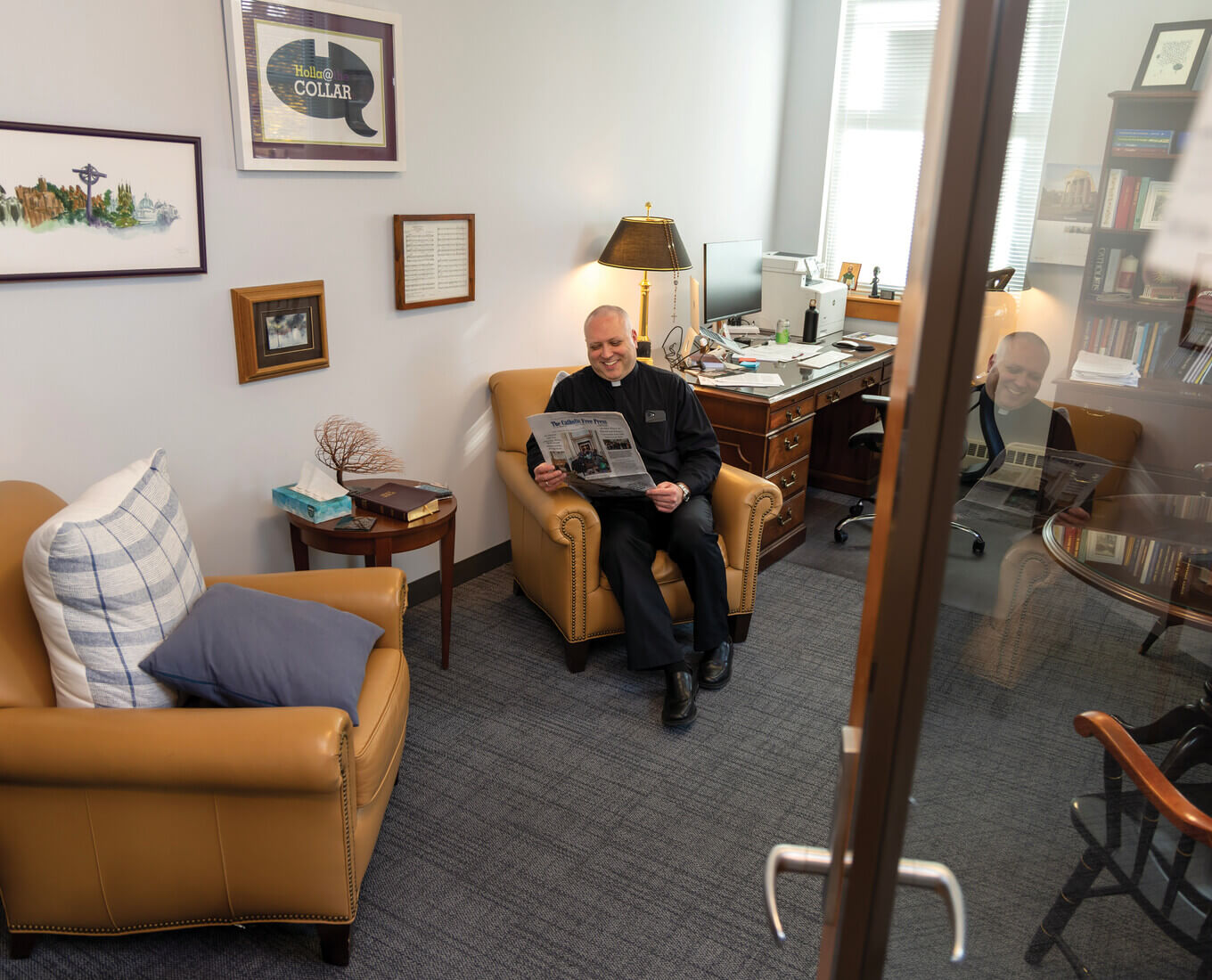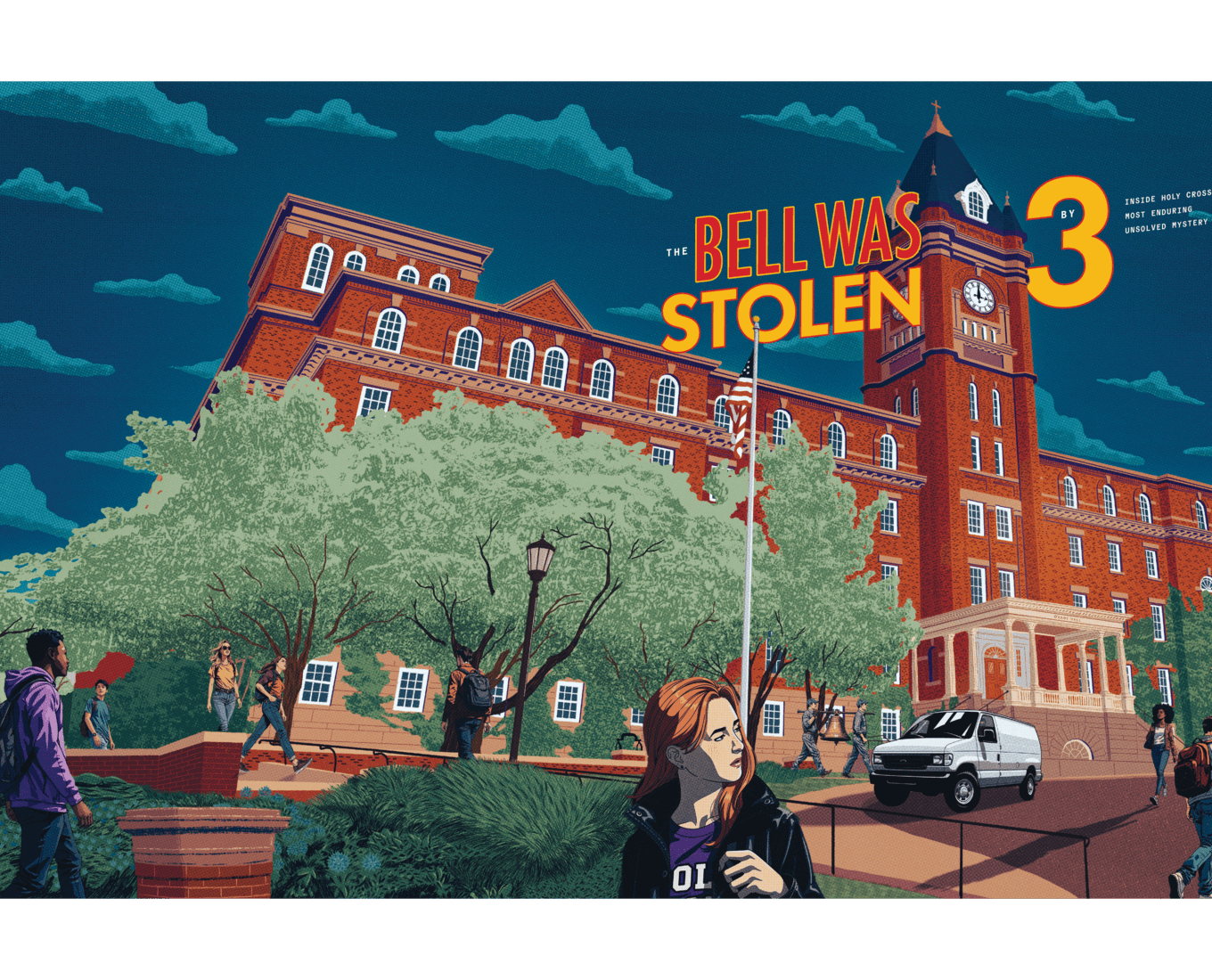
It’s not just athletes who start at the bottom and, after years of developing their skills in the minor leagues, break into the big time and sign major contracts. Sports businesspeople work just as hard as they rise through their industry and develop their negotiation skills until they can make multimillion-dollar deals for their corporation.
Case in point: Burke Magnus ’88, executive vice president of programming and scheduling for ESPN, who began his career as an intern and, today, travels around the world and negotiates contracts to secure broadcasting rights with European soccer leagues; international major golf and tennis tournaments; NFL, NBA and MLB games; and college football and basketball games — including many bowl games and the College Football Playoff.
But that’s half the job for Magnus, whose department also oversees ESPN’s content strategy and scheduling — in other words, deciding when to feature events so they will generate the most viewers while keeping sports fans happy.
Don’t blame him if ESPN doesn’t broadcast every basketball game involving must-see teams like the Cleveland Cavaliers, Boston Celtics or the NBA Champions Golden State Warriors. Squads dwelling at the bottom of the standings like the Philadelphia 76ers need time on the tube, too.
“Our agreement rights contract with the NBA specifies the maximum and minimum number of times we can put teams on. At the same time, we look at trying to build a schedule that will engage the largest possible audience,” says Magnus, who admits it can be a bit of a juggling act. But the bottom line is each league he negotiates with is just as interested in face time as it is in generating revenue.
“The business side of sports is more of a relationship business, and relationships work best when both sides are invested in building something,” he says. “The priorities of our TV partners are in growing their sports. It’s not just all about the money, but creating a true partnership and growing viewership for their league.”
When Magnus joined ESPN as a program associate in 1995, the cable network was available in about 65 million homes, according to Nielson. Today, ESPN produces more than 64,000 hours of live entertainment and studio programming and averages up to 115 million viewers a month.
“Sports programming is no longer just TV,” he says. “We produce content for mobile, online, social media, digital and radio. Our mission is to serve sports fans anywhere, anytime. But TV is still our primary vehicle.”
The Big Score
Magnus played sports with friends for fun while growing up and he joined the club rugby team while attending Holy Cross. “I realized as I matured that my DNA was getting in the way of a particularly spectacular career,” he jokes. “I played rugby for four years to not much acclaim. But it was fun to socialize and keep active.”
Magnus was a history major, and it was his history professors that set him on his sports career path. Professor William A. Green, his adviser, helped him during his junior year away in Washington, D.C., where he secured a position writing for the "National Catholic Reporter" newspaper.
“And Professor (David J.) O’Brien cemented me in the direction of loving the media business. I got the bug for journalism, and he encouraged me to write. I focused on sports writing and wrote for the sports section of 'The Crusader' — hard-hitting stories about intramural sports,” he says with a laugh.
Looking back at his time at Holy Cross, Magnus says, “My Jesuit, liberal arts education taught me how to think, how to question, how to communicate and how to write. It’s amazing what you can do and where you can go when the foundation of your education is solid.”
After graduation, he held a number of non-writing, non-sports-related positions, including several in the legal system. At one point, he contemplated law school, but he wasn’t ready to give up on a career in sports.
“Sports was a passion, the only thing I cared about morning, noon and night,” he remembers. “It nagged at me that I should make a career of it someday. I just loved it so much. But it was difficult to figure out how to get started. I knew nobody in the business. My parents had no connections. Then I learned about the sports management program at the University of Massachusetts.”
He earned a master’s degree in sports management in 1995. During his studies, he secured an internship in the programming department at CBS Sports, worked hard at his job, networked and made contacts at NBC, ABC, FOX Sports and ESPN, and sent out a pile of resumes. An executive at ESPN called for an interview, and he joined the network a few months after leaving UMass.
He was quickly promoted from program associate to program planner, and rapidly rose through the ranks and gained more responsibilities. In 2000, as director of programming and acquisitions, he was responsible for ESPN’s men’s college basketball programming and scheduling. By 2008, he was senior vice president of college sports programming and winning accolades; in 2006, he was named to "Sports Business Journal’s" Forty Under 40, honoring the most promising young executives in sports business; he received the Distinguished Alumnus Award from UMass’ McCormack Department of Sports Management in 2011; and in 2013, he earned the National Football Foundation Legacy Award, for his support and leadership in promoting college football, while si.com — "Sports Illustrated’s" website — named him the fifth “Most Powerful Person in College Sports.”
Reflecting on his career and his hard work to rise to a top position in sports programming, he says, “The question people most often ask me — because I was a history major at Holy Cross — is ‘How did you end up where you are?’” He pauses a moment. “The whole world was telling me I had to be either a teacher or a writer. But I just kept asking myself: Isn’t there something else I want to do?”
Q&A with Burke Magnus ’88
If you could get a signed baseball, basketball or football, whose autograph would you want? I’m a big New York sports fan, so I’d want a baseball signed by Derek Jeter. And a basketball signed by LeBron James, because I have a connection with him: We did a deal to televise his high school games. I think he’s the greatest NBA player of all time.
What is your favorite sports movie? "Eight Men Out" (1988). I love the story of the Chicago Black Sox scandal. And I’m a big history buff.
What sports event in history do you wish you had seen? Tiger Woods winning his first Masters Tournament (1997). He gave an unbelievably dominant performance, and I like the way he handled being the first African American to win the Masters.
What is the strangest sport ESPN has ever televised? Trampoline dodgeball – it’s played just as it sounds, and it’s quite bizarre. And on every July Fourth, we televise Nathan’s Hot Dog Eating Contest. It’s a tradition.
Is chess a sport? Yes! My definition of sports is more broad than others'. Sports are competitions; they don't have to be just an athletic endeavor.
Should Roger Clemens go into the Baseball Hall of Fame? (Pause.) Pass. I’ll just say I’m a Yankees fan.
Written by Benjamin Gleisser for the Winter 2018 issue of Holy Cross Magazine.
About Holy Cross Magazine
Holy Cross Magazine (HCM) is the quarterly alumni publication of the College of the Holy Cross. The award-winning publication is mailed to alumni and friends of the College and includes intriguing profiles, make-you-think features, alumni news, exclusive photos and more. Visit magazine.holycross.edu/about to contact HCM, submit alumni class notes, milestones, or letters to the editor.

